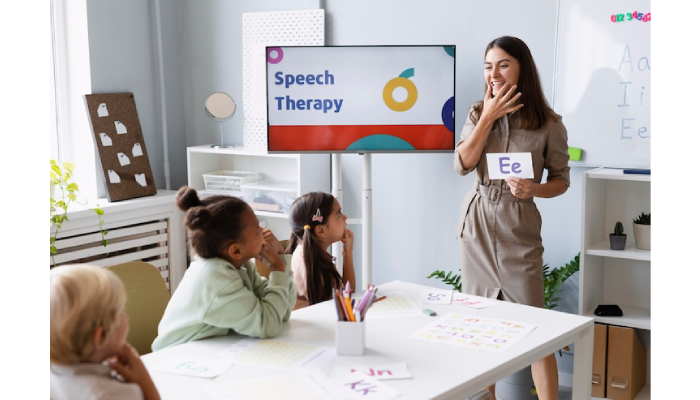Counselling courses for schools are designed to prepare professionals to support students academically, socially, and emotionally. Typically, students start with a bachelor’s degree in fields like psychology or education, then move on to a master’s program focused on school counseling. These graduate programs cover topics such as counseling techniques, legal issues, career guidance, and working with diverse populations. Students also complete practicum and internships in real school settings to gain hands-on experience under supervision. After finishing coursework and fieldwork, they must earn state certification or licensure by passing exams and meeting other requirements. Programs can be online or in-person and emphasize skills like crisis intervention and advocacy.
Purpose of Counselling Courses for Schools
Counselling courses for schools aim to prepare professionals who can support students’ academic, social, emotional, and career development in K-12 settings. These programs teach future counselors how to recognize and address mental health challenges common among school-aged children, helping them provide timely support or referrals. They also emphasize career guidance tailored to the developmental stages of children and adolescents, ensuring students receive appropriate advice as they plan for their futures. Training includes crisis intervention techniques designed specifically for school environments, enabling counselors to respond effectively during emergencies. Another key focus is advocacy, equipping counselors to promote student well-being within schools and the wider community. Collaboration is central to these courses, stressing teamwork with families, teachers, and community resources to create a supportive network for students. Understanding diversity, equity, and inclusion is also critical, as counselors learn to address the varied backgrounds and needs of the student population. Additionally, courses cover assessment methods to identify student needs and provide appropriate referrals, including support for special education and behavioral interventions. Ethical standards and legal responsibilities unique to school counseling round out the purpose, ensuring that professionals act with integrity and within regulatory frameworks. For example, counselors might work closely with teachers and parents to support a student facing anxiety while guiding them through academic planning and social challenges.
Educational Steps to Become a School Counselor
Becoming a school counselor starts with earning a bachelor’s degree in fields like psychology, education, or sociology to build foundational knowledge about human development and behavior. Next, aspiring counselors typically complete a master’s degree specifically in school counseling, which emphasizes counseling theories, ethical practices, and school-focused skills over 2 to 3 years. During this graduate program, students take courses covering counseling techniques, human development, ethics, assessment, and often topics like social justice and career guidance. They also participate in supervised practicum and internships within real school settings, gaining hundreds of hours of hands-on experience under professional supervision. After earning their master’s degree, candidates must meet state-specific requirements, which usually include passing certification exams and completing additional supervised work hours. Some states require extra teaching credentials or endorsements before practicing. While doctoral degrees are optional and geared toward academic or specialized counseling roles, maintaining detailed records of education and fieldwork is essential for licensure and certification processes. This structured educational pathway ensures school counselors are well-prepared to support students’ academic, emotional, and social needs effectively.
Core Curriculum in Counselling Programs
Counselling courses for schools typically start with a foundation in undergraduate studies where students learn general and developmental psychology, focusing specifically on children and adolescents. This helps future counselors understand the typical stages of growth and behavior in their student population. Courses in psychological testing and measurement teach how to use assessment tools to evaluate student needs effectively. Additionally, students study abnormal psychology and personality theories to better grasp the range of behaviors and mental health issues they may encounter in schools.
At the master’s level, the curriculum becomes more specialized with an emphasis on counseling theories and skills tailored for school settings. Students explore group counseling methods, learning how to manage dynamics in classrooms or small groups to support social and emotional development. Legal and ethical guidelines are a key part of the training, ensuring counselors understand their responsibilities and boundaries within educational environments. Career development theories and planning are also covered, preparing counselors to assist K-12 students with academic and vocational guidance.
Courses addressing family and school collaboration teach strategies for working with parents and educators to promote student success. Social justice, diversity, and advocacy are integrated throughout the program to equip counselors with the cultural competence necessary to serve diverse student populations fairly and effectively. Research methods and educational assessment courses prepare students to use data and evidence-based practices in decision-making and program evaluation. This comprehensive curriculum, often paired with supervised practicum experiences, ensures that graduates are ready to support the wide-ranging needs of students in school communities.
- Undergraduate courses cover general and developmental psychology focusing on children and adolescents.
- Include psychological testing and measurement to understand student assessment tools.
- Study abnormal psychology and personality theories relevant to student behavior.
- Master’s curriculum emphasizes counseling theories and skills applicable to school settings.
- Explore group counseling methods and dynamics for classroom and small group interventions.
- Learn legal and ethical guidelines governing school counseling practice.
- Cover career development theories and planning tailored to K-12 students.
- Address family and school collaboration techniques to support student success.
- Incorporate social justice, diversity, and advocacy topics to serve varied student populations.
- Research methods and educational assessment courses prepare counselors for data-driven decision-making.
Hands-On Experience Through Practicum and Internships
Practicum and internships are essential parts of counseling courses for schools, providing students with supervised fieldwork in real school environments. These experiences allow aspiring counselors to apply theories learned in the classroom by working directly with students, both individually and in groups, under the guidance of experienced supervisors. Programs typically require a minimum of 600 hours or more in practicum to meet state certification standards. During this time, students gain vital skills in crisis intervention, assessment, and consultation with school staff, helping them handle real challenges such as behavioral issues and academic concerns. They also get exposure to diverse student populations, including those with special education needs, which broadens their understanding and adaptability. Practicum work includes learning how to document cases properly, manage files, and report ethically, while collaborating closely with teachers, administrators, and parents. Supervisors provide regular feedback aimed at improving counseling techniques and professional conduct. These hands-on experiences serve as a bridge between academic knowledge and the realities of professional school counseling practice.
Certification and Licensing Requirements
To work legally as a school counselor, candidates must obtain state-issued credentials such as certification, licensure, or endorsements. This process usually begins with completing a master’s degree program that is approved by the state or recognized accrediting bodies. After graduation, candidates often need to pass specific exams like the Praxis School Counselor test, where required, to demonstrate their knowledge and readiness. States also require background checks and fingerprinting to ensure the safety of minors. Additionally, most states mandate a period of supervised work experience, commonly about two years after earning the degree, to gain practical skills under professional guidance. Examples of credentials include California’s Pupil Personnel Services (PPS) credential and the National Certified School Counselor (NCSC) credential offered by the National Board for Certified Counselors. Some states may also require counselors to hold teaching credentials or subject-specific endorsements. Maintaining certification involves ongoing continuing education and timely renewals to keep up with evolving standards and practices. Because requirements vary across states, it is important for candidates to carefully review local regulations and keep thorough documentation of their education, exam results, and supervised experience for credentialing purposes.
Different Ways Counselling Courses Are Delivered
Counselling courses for schools are offered through various delivery methods to accommodate diverse student needs and schedules. Traditional in-person formats provide face-to-face instruction and direct interaction with instructors and peers, which can be beneficial for hands-on learning and immediate feedback. Online programs offer greater flexibility, allowing students to access lectures, readings, and discussions from anywhere, making it easier to balance work, family, and education. These programs often include interactive webinars and group discussions to boost engagement and use technology platforms that streamline assignment submissions and communication with instructors. Hybrid models combine the advantages of both, with online coursework supplemented by occasional in-person sessions for practical experience. Virtual practicum supervision is handled through video calls and digital feedback tools, ensuring students still receive guided field training remotely. Accredited online programs meet state board requirements, making them eligible for licensure, so students can choose delivery methods based on their personal circumstances, accreditation status, and state regulations.
Continuing Education and Professional Growth
Maintaining licensure as a school counselor involves ongoing education to stay current with changes in laws, ethics, and counseling techniques. Professionals regularly attend workshops, seminars, and conferences, often provided by organizations like the American School Counselor Association (ASCA). These events offer opportunities to learn about new research, counseling tools, and educational technologies that improve student support. Many counselors also participate in specialist training programs, such as ASCA U Specialist Training, to deepen expertise in specific areas like college counseling or mental health services. Beyond formal courses, engaging in peer supervision and professional learning communities helps counselors refine their skills and gain fresh perspectives. Renewing credentials requires meeting continuing education unit (CEU) requirements, which encourages a commitment to lifelong learning. Counselors often pursue advanced certifications to expand their roles or move into leadership positions, where they can advocate for students and influence school policies. Throughout their careers, maintaining high ethical standards and professional competence remains essential, ensuring that counselors effectively support the diverse needs of their school communities.
Essential Skills Developed in Counselling Programs
Counselling programs for schools focus on developing a range of essential skills that prepare future counselors to effectively support students. Ethical decision-making is a key component, ensuring counselors uphold professional standards and maintain student confidentiality in all situations. Multicultural competence is also emphasized, enabling counselors to work respectfully and effectively with students from diverse cultural and social backgrounds. Clear communication and collaboration skills are taught to help counselors build strong relationships with students, families, teachers, and community members. Programs train students in counseling techniques suited for both individual and group settings, addressing academic, emotional, and social needs. Crisis intervention strategies are another critical skill, equipping counselors to respond calmly and competently during emergencies to prevent issues from escalating. Additionally, counselors learn to use data-driven approaches for planning and evaluating counseling programs, improving their ability to meet student needs through evidence-based decisions. Problem-solving and critical thinking skills help counselors analyze challenges and develop practical solutions tailored to students. Advocacy is also a focus, empowering counselors to support equity and access within schools, ensuring all students receive fair opportunities. Time management and organizational skills are necessary for handling caseloads and administrative duties efficiently. Finally, adaptability is cultivated so counselors can thrive amid changing school policies, environments, and evolving student needs. These skills collectively prepare school counselors to be effective, responsive, and supportive professionals.
Accreditation and Its Role in Counselling Education
Accreditation plays a crucial role in counselling education by ensuring that programs meet established quality standards. Bodies like the Council for Accreditation of Counseling and Related Educational Programs (CACREP) evaluate and approve curricula to align with professional competencies required in school counseling. Regional accreditation also confirms institutional quality, which is important for recognition by employers and licensing boards. Choosing an accredited program affects a student’s eligibility for financial aid and the ability to sit for certification exams, making it essential to verify accreditation before enrollment. Accredited programs undergo regular reviews and updates to maintain high standards, helping graduates gain better acceptance in state certification systems and easing credit transfers between institutions. On the other hand, programs without proper accreditation may limit career options and make it more difficult to obtain licensure. Many institutions provide clear information about their accreditation status and how it influences graduates’ career prospects, emphasizing transparency and helping students make informed decisions.
Career Paths and Job Outlook for School Counselors
Graduates of counselling courses for schools typically find employment in public and private K-12 schools across the country. Beyond traditional school settings, opportunities also exist in vocational schools, educational nonprofits, and community agencies that support youth development. The median salary for school counselors in the US is around $61,000, though this can vary based on location, experience, and the type of institution. The job outlook remains stable, driven by growing recognition of student mental health needs and the importance of academic and career guidance. Experienced counselors often move into administrative roles like director of counseling services or specialize in areas such as college admissions counseling or mental health support. Some pursue careers in policy development or educational research to influence broader systemic change. School counselors play a key role in enhancing student academic achievement, emotional well-being, and career readiness. The nature of school calendars and flexible schedules also contributes to job satisfaction and work-life balance. Continuing professional development is essential for counselors to stay current with best practices and expand their career opportunities over time.

Mary Burns is a dedicated writer focusing on health and fitness topics. With a passion for promoting wellness and vitality, Mary shares her knowledge and expertise through engaging and informative blog posts.




